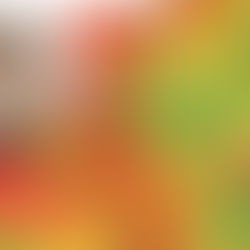Review: Liu Wei's 'Nudita' at Whitecube
- Aybike Ceren Kahveci
- Jul 28, 2021
- 4 min read
Shanghai-based artist Liu Wei’s exhibition ‘Nudita’ takes its name from an essay written by the Italian philosopher Girogio Agamben. The exhibition boasts pieces such as paintings, sculptures and new installations aimed to make sense of what the world has gone through, and still is going through, in these unusual and pivotal times. All created during the height of the pandemic in 2020 and 2021, the pieces play the role of stripping society down to its core, and taking a look at what we are made of when all third parties are eliminated: bodies, atoms, living spaces. Take just one glance at any of the pieces on display in this exhibition, and you will sense that Wei is actively looking for answers as to how we can collectively rebuild what we already have, based on the novel experiences we have gone through. In summary, the exhibition proposes the question: ‘Given the current condition of the world, what possibilities might exist for human beings to live together as a collective body?’
Liu Wei offers his spectator the semblance of an answer…

The first room I walked into had multiple paintings on the wall as part of the ‘Resurrection’ and ‘Nudity’ collections. Wei chose to depict rock-like arrangements surrounded by blue areas suggestive of water in the former, and has studied the bodily shapes that merge and swell across the surface in the latter. He considers both of these studies to suggest the most basic element of humanity: naked bodies. In the same room stands Dimension (2021), a sculpture part of the ‘Microworld’ series designed to represent what the artist would imagine our bodily atoms to look like, out of pure imagination. The atoms are enlarged to resemble an architectural wonder such as ‘The Atomium’ in Belgium. The physical transformation of Liu’s concept into an architectural piece, it’s statuesque presence emanates power, illuminating the mystical aspects of form existence and conception. Liu has stated that ‘We can’t truly experience this micro-world, but somehow we are, unquestioningly, convinced of its existence.’ Curating a piece that is supposed to be reminiscent of the most core elements that humanity is made of, and cherishing its concomitant evidence and mystery, Liu magnificently captures the conflicting tension of the known and of the unknow of existence. Whilst also highlighting that technological advancements stemming from human power have enabled us to casually gaze at ourselves from such a primal perspective. Once again, the artist visually presents complex ideas through simple forms, shapes and colors. In a way, entering into Liu’s World is like setting food in the uncharted territory of philosophical enigmas, frightening yet hypnotic. You begin this exhibition by thinking you’re looking at yourself, only for Liu to whisper through his creations ‘No, look beyond…’.
What touched me the most was Liu Wei’s perspective on how our cities have responded to the sudden changes in lifestyles and mentalities throughout this pandemic, as he has built a communal city landscape out of fiberglass painted in grey paint that resembles a city square, named Allegory (2021). Looking deserted and abandoned, the piece poses the question of what is left behind when humanity is locked inside. Wei sees these spaces as ‘denudate forms’ with ‘an openness and a mystery’. What is their exact purpose when society has abandoned communal spaces out of fear? What is the exact reason behind their existence in such times of emergency? As a student living in London for the past three years, seeing empty and manufactured communal spaces resembling so strongly the architectural choices that I have been exposed to in my formative years irked me in a sense that is hard to explain. While the aforementioned pieces strive to represent a very intuitive formation of a communal sense, Allegory strikes out all of this by leaving the visitor with a sense of emptiness, hoping to find answers as to what core purpose surroundings carry with them as they live through such unprecedented times unscathed and unbothered.

Right behind this piece is an exhibition of four similar pieces, all enlarged digital prints printed on canvas, and then painted over with straight lines all next to each other. This series of paintings strives to examine the changing perception of technology and its effect on how we see images and what is happening around us overall. These four pieces are a shrine to the changing reality brought about by technological advancements, as nothing we see online is ever as what it is originally. In a way, the artist mimics the mind games technologies play on their users, inviting a sense of awareness and precaution. The same room also hosts the sculpture Vanguard (2021), which draws on ideas of collectivism and communism, and refers back to the original theme of the exhibition of collective living, and maybe surviving.
Wei’s constant search for a collective solution to the unnamed problems that have arisen out of the devastating pandemic has guided him in the direction of collectivism, not in the strictly political/social sense that is followed in his home country but in a more humanist way. All of the pieces in this exhibition suggest a call to humanity, Wei curates pieces that acts as mirrors to the viewers, inviting spectators to reflect on the things that we have been left with during the height of the pandemic and throughout our isolation at home. Through conceptual visual pieces, Wei strives to change our readily-accepted perception of the world in an era of heightened technological advancements and uniquely devastating global events. Overall, this exhibition leaves its viewer with the echo of new possibilities. For anyone that seeks to look beyond ordinary shapes, questions and states of consciousness, this exhibition is a must.
Photos: 1: Whitecube.com
2: Ocula.com Liu Wei, Vanguard (2021). Photo: Simon Fisher.


































Comments